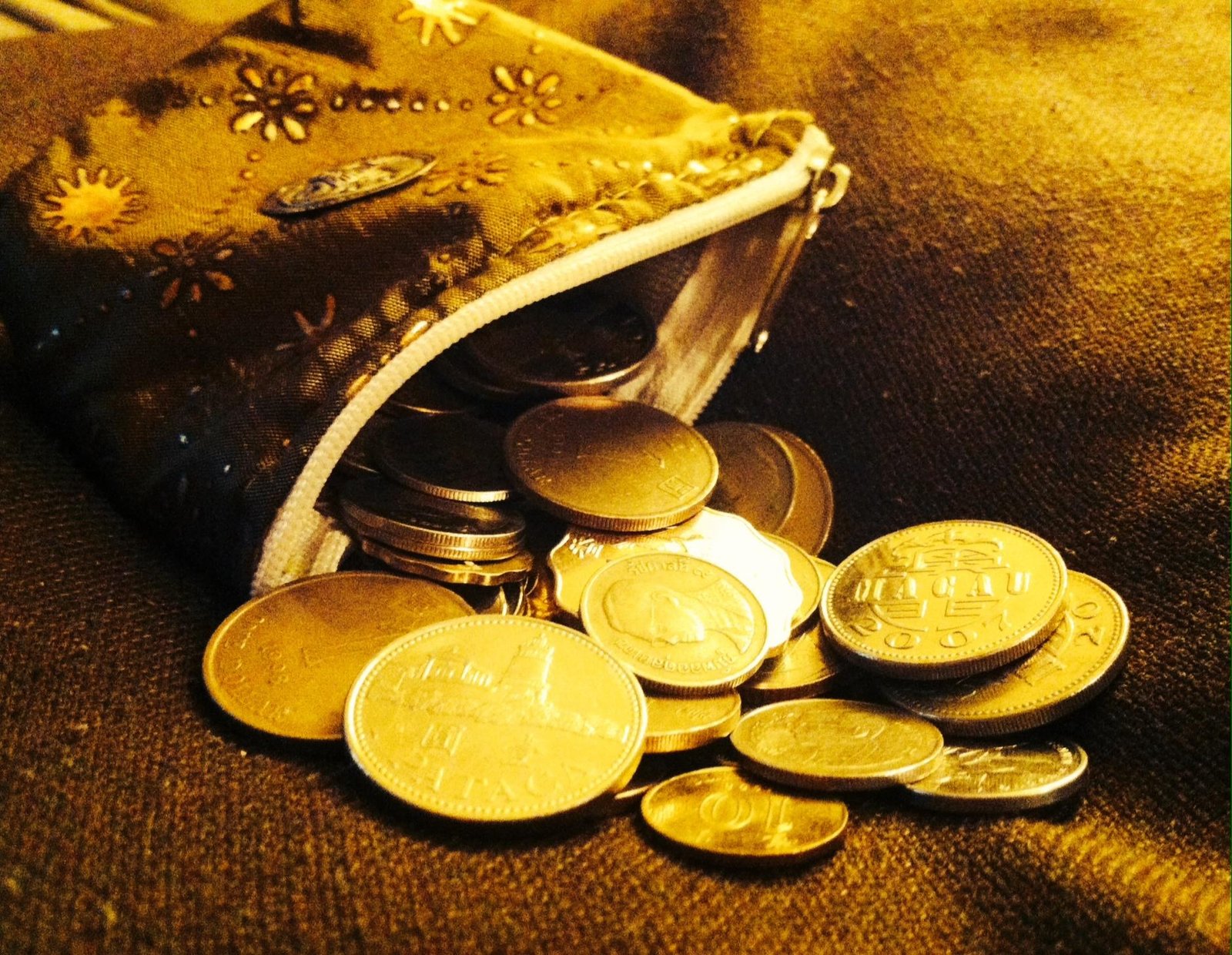 Pandemics are a part of life since the dawn of civilization. It’s just part of the reality of humans living in close quarters. Whenever the first announcements of a pandemic hit the news, people panic and rush to the grocery stores. This ends up causing unnecessary chaos and shortages. There was no panic in my house though, because having already experienced what in hindsight was the last SARS and a war, plus Grandma’s warnings in the back of my mind, we knew to stay stocked up on some things just in case.
Pandemics are a part of life since the dawn of civilization. It’s just part of the reality of humans living in close quarters. Whenever the first announcements of a pandemic hit the news, people panic and rush to the grocery stores. This ends up causing unnecessary chaos and shortages. There was no panic in my house though, because having already experienced what in hindsight was the last SARS and a war, plus Grandma’s warnings in the back of my mind, we knew to stay stocked up on some things just in case.
Bathroom supplies and food in the pantry.
You should always keep enough toilet paper, baby wipes, sanitary napkins, soap, deodorant, cleaning and laundry supplies, and canned and/or dry food to get through 2-3 months. This is just a given. There may be times you might not be able to get to the store for awhile either because you’re sick or because the stores are closed or crowded.
What may not be common knowledge though is how your lifestyle can make staying stocked up easier. Use your canned and dry food. Some things can last for years, but they won’t be good for years. Old and degrading packaging may also attract dust and bugs. So to cycle your supplies, stay aware of any infestations, and figure out what you actually use and don’t, use the things. Cook something from pantry supplies at least once a week, and buy new stuff every month or two. In time you build up a nice stock of supplies without breaking the bank.
Be realistic in this. Where I live, Haifa Israel, is a humid place that gets unbearably hot in the summer. In summer, I do not feel like cooking much, so when summer is coming, I stock up on things that don’t require a lot of standing in the kitchen. We eat a lot of tuna salad and one pot pasta and rice dishes in the summer.
If you can afford one, and power services are consistent in your area, even during a war, you should get a deep freezer. Then you can stock up on frozen vegetables and make casseroles to freeze. If electricity might fail, get enough canned and dried foods. It is very helpful to have alternative cooking supplies too. If you normally use electric, have a gas burner. If you normally use gas, have an electric hot plate or induction hob.
Fresh meat may be hard to come by, and the price may shoot up astronomically. So keep a stock of canned or dried options, or just learn to do with less or without. I don’t recommend replacing meat with soy proteins other than tofu, bean paste, and the beans themselves because its overuse outside of traditional foods is not really more ethical or environmentally friendly than meat. I do however, recommend using it and other beans the old fashioned way. Just about anything that’s good with beef will be better with pinto beans or lentils. Chickpeas are the chicken of the plant world. Honestly, if you mix chickpea paste with chicken or ham soup powder or cubes, folks will think they’re eating deviled chicken or ham. Need burrito filling? Put your favorite canned mushrooms in a blender, and mix them with cooked pinto beans or red beans and some fried onions and green chilies.
Milk will be scarce, so keep some powdered milk around or make a mix of oat and tahini milk. Tahini is just good for so many things.
Another thing that gets scarce in a pandemic or other crisis is eggs. Fortunately there is an easy substitute for this: tahini. I’ll post a recipe later. This can be used in recipes, and to make a mayonnaise substitute. There are some scrambled tofu recipes, but to be honest, rice pancakes with a bit of tahini will give you more of that kind of texture that folks who like scrambled or fried eggs like.
 If you have pets who need dry food, invest in air tight large containers. The same rules for bags of human food apply to pet food. Heat, time, and burrowing bugs will wear down the packaging, so if you want to keep a lot of pet food in case of a shortage, you have to prepare it for long term storage. If you can’t find good enough large containers, get smaller ones. Either way, measure out doses of what your pets would eat in a day, and put them in plastic or reusable silicone bags inside the larger container. Every time you open it, you risk something flying or floating in, or just the moisture from the air making the food stale.
If you have pets who need dry food, invest in air tight large containers. The same rules for bags of human food apply to pet food. Heat, time, and burrowing bugs will wear down the packaging, so if you want to keep a lot of pet food in case of a shortage, you have to prepare it for long term storage. If you can’t find good enough large containers, get smaller ones. Either way, measure out doses of what your pets would eat in a day, and put them in plastic or reusable silicone bags inside the larger container. Every time you open it, you risk something flying or floating in, or just the moisture from the air making the food stale.
If your container is big enough, wipe down the bags of food that haven’t been open, and put them straight into the container. When you open a bag, portion out the doses, and lay them on top of the other(s). You want to keep the dry food from being exposed to air as much as possible.
If you treat your pets with canned food, the type that you store should be in an actual can, and not the tins with the plastic peel off cover. Those get damaged too easily for long term storage. Sometimes the ups and downs of temperature will degrade their seals.
Grow stuff!
If you have a yard or a reasonable amount of window space, you should grow what you can in your home. If you can get away with it, you should also grow stuff around your neighborhood. Renegade gardening is one of the best ways to ensure that nobody in your area is starving in a rough time. If you’re from the south in the U.S. you may remember “polk salad” that used to grow all over the place. Find out what plants and trees will grow in your area without much tending, and plant some stuff.
Just one thing to beware of though. In places where there have been a lot of “manicured” lawns, there might be herbicides and pesticides in the ground. Before you plant food somewhere, find out the history of the place and whether or not it’s likely to be contaminated.
Aside of this, understand that foraging from outdoors is not like buying something from a grocery store. It will have whatever bugs and microbes are outside, so it should be properly inspected and cleaned before you eat it. Usually a good half hour soak in a 4% saltwater solution is enough, but it’s not always. You can’t eat everything raw. Remember it takes about 20-30 minutes of boiling to kill everything.
Because of the possibility of contamination, you may want to stick to growing above ground foods if you live in an urban area. The good news is that you can add dried onions, carrots, and potato flakes to your pantry list.
Cold and flu medicine
Keep enough cold and flu medicine in the cabinet for each person in your home to get through a month, plus one. If you can, get your doctor to give you a prescription for Tamiflu or another effective flu medicine so you’ll have it handy. Most of the kinds of influenza and SARS that have gone around the past 20 years or so are responsive to this type of medication, though not always. Still, it might be helpful.
Now, when I say enough medication, I really mean enough. Also be mindful of the type of medication. If someone is normally taking an opiate for pain, this might be harmful for them if they are having difficulty breathing. Have alternatives ready for them before it is too late because what you need might not be available during a pandemic.
If anything that you need could possibly remotely be marketed as a cure or lifesaving during a pandemic, stock up because it might even be seized. If you need hydroxychloroquine for lupus and other conditions, or ivermectin, or any kind of antiparasitic or antiviral medicine, stay stocked up with an extra month or two month supply.
Water
If water service may be disrupted, you probably already know to prepare, but it bears mentioning anyway. Even if your service may not be disrupted, the quality may fall due to understaffing. So make sure you have bottled water and water filters.
Entertainment
Quarantines and lockdowns can get lonely and boring. Make sure that you have how to entertain yourself. Many people forget about this, but it’s important. You need to preserve your sanity.
That book you’re thinking of buying, but aren’t sure if you’ll read it? Buy it. It’ll come in handy next pandemic. That video game you think you’ll never get into because “you have a life”? Get it. You’ll play it next pandemic.
That social group you’re kinda interested in, but a little shy about? Join it. One of those people might become your best friend next pandemic. Okay that’s a little bigger than entertainment, but you get my point. You never know what will happen. Don’t take anything for granted.
Money
Most of us out here are not rolling in cash. However, what ever little bit you can squeeze off to the side, do it. Your goal should be to be able to live for 6 months to a year from your savings. How ever much that is, consider it your zero.
Bad times always come. During the good times, prepare for the bad. When you can, help others to do so too. When you are blessed, bless others.
If you don’t have money, you can use your voice to keep the authorities accountable. Make the state put some of our tax dollars back into the people.
If you have any other preparedness advice, please let us know in the comments. Post your payment info too so people can tip you for your tips.
Blessings and Ashé!







